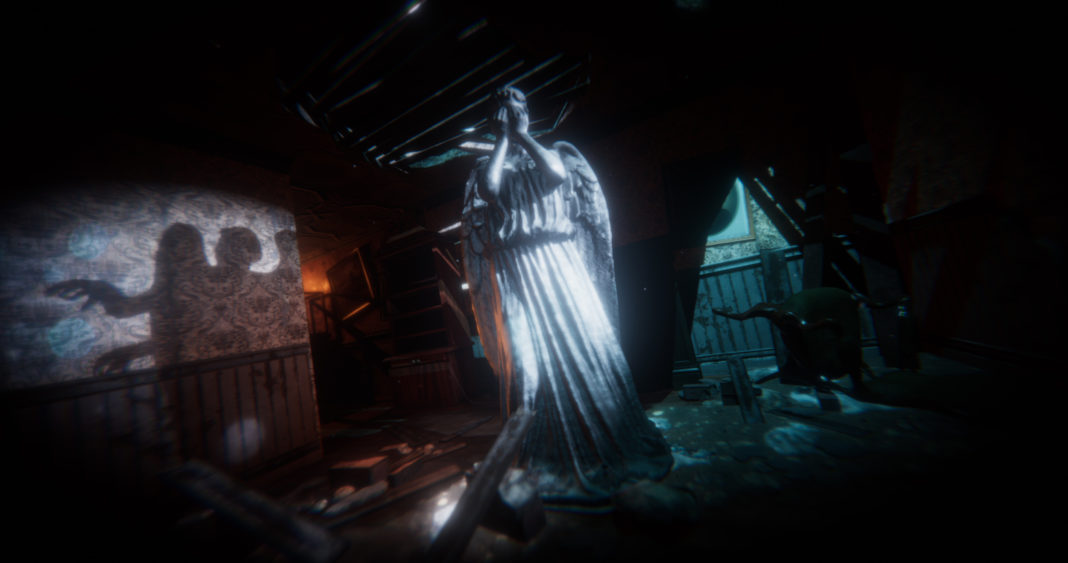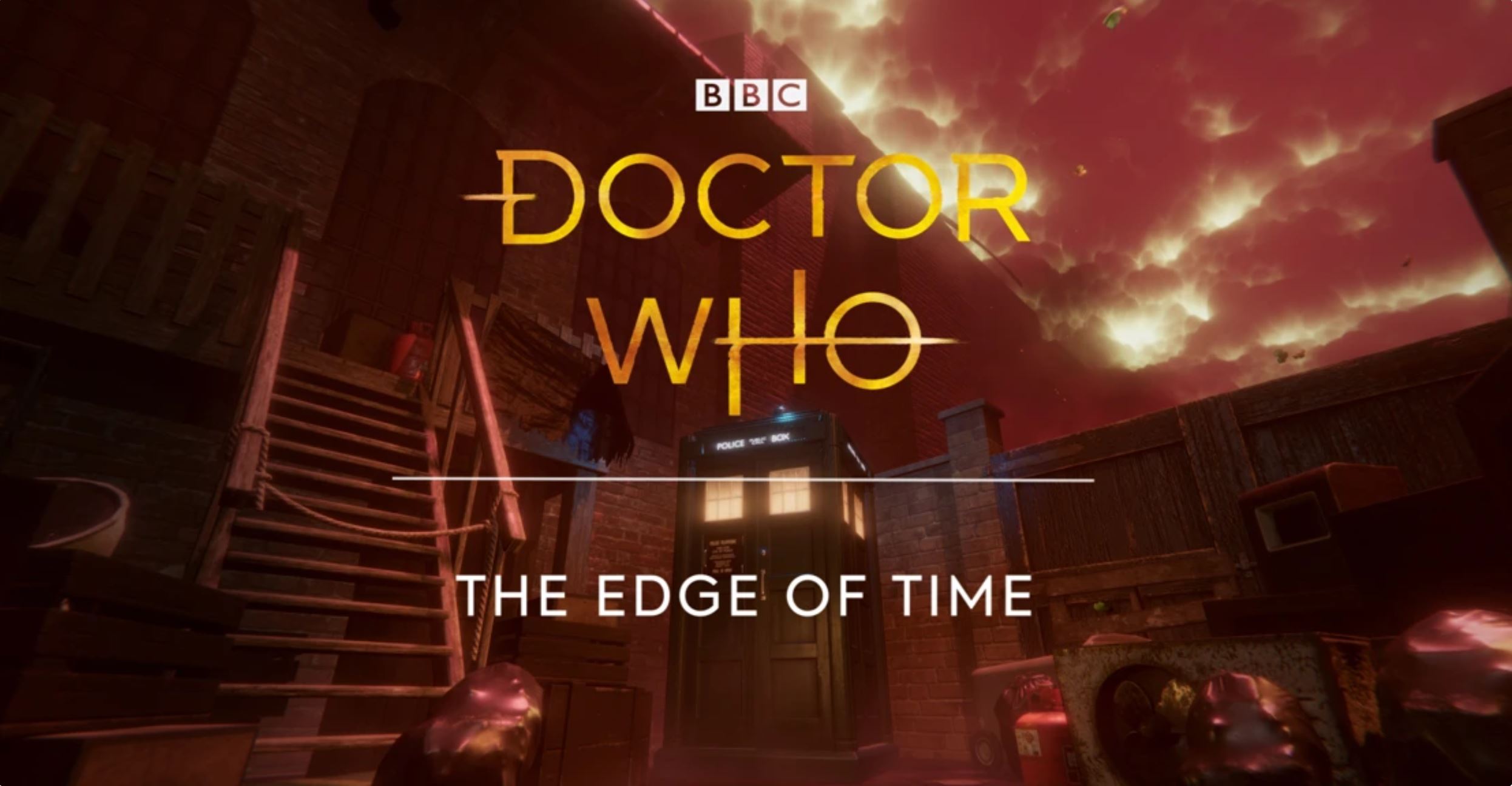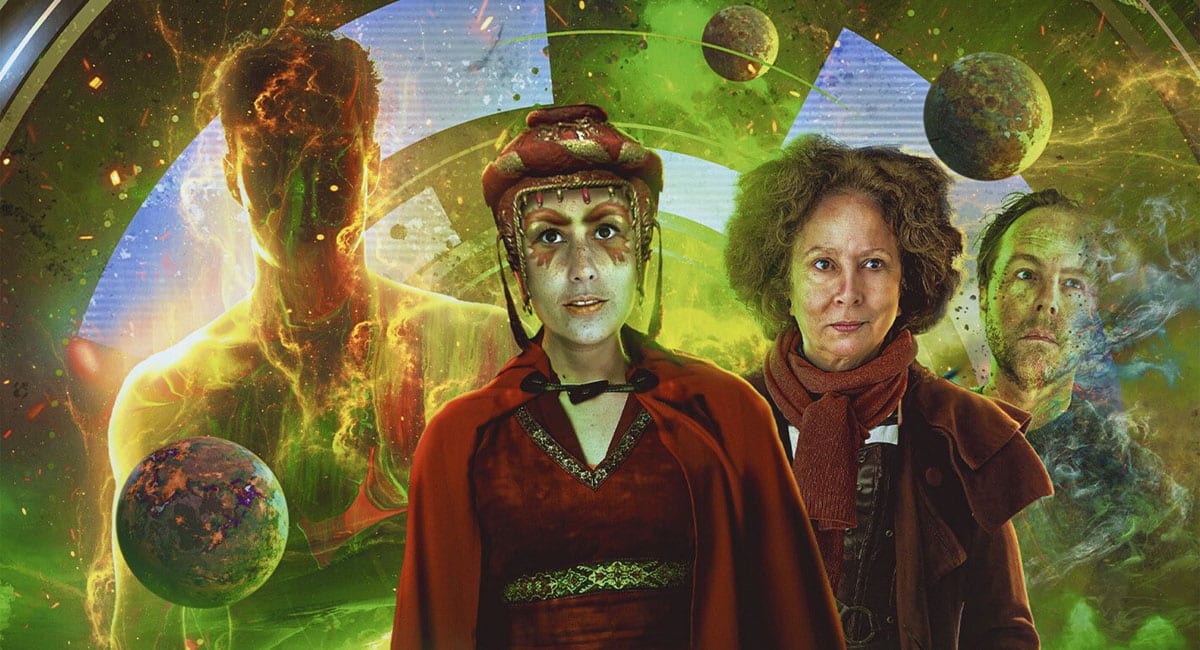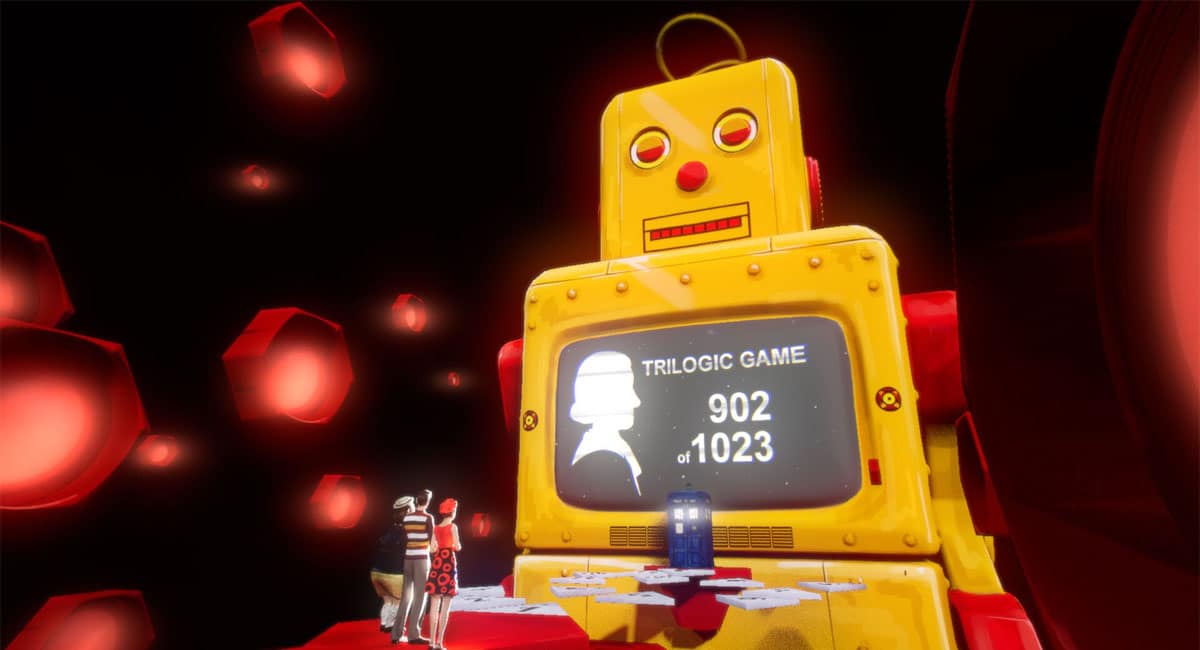By Carolyn Hinds
There is no better time or place to debut a game – especially one based on a sci-fi show – than at San Diego Comic-Con, the world’s largest nerd convention. Developed by Maze Theory and Publisher Playstack, Doctor Who: The Edge of Time is one of the newest Virtual Reality (VR) games to hit the market.
As someone who has never played a VR game and has a cursory knowledge of the Doctor Who show, I thought it would be a great opportunity to learn about them. VR as a concept has always fascinated me, the idea that we can interact with people and things that are there, but yet not there, is both exciting and novel. While it may be disconcerting at first to reach for objects such as a Sonic Screwdriver and be guided by the voice of the 13th Doctor (played by Jodi Whittaker), the excitement of completing tasks to go on a new adventure to new galaxies quickly overrode any apprehension I had.
To learn more about the process of creating the immersive fan experience of Doctor Who: The Edge of Time and the future of VR gaming, I spoke with Ian Hambleton, CEO of Maze Theory.
The Beat: Thank you so much, Ian, for speaking to me about your game for Doctor Who. It was very interesting for someone who isn’t much of a gamer but is more used to standard games like Mortal Kombat, Mario Brothers. I found the controls quick to adjust to. Can you give me the steps to developing a game, especially a VR game?
Ian Hambleton: Well, one thing to just pick up on what you just said, for us at Maze Theory, we’re not like gamer-gamers, right? So, the stuff we’re really excited about doing is dramatic narrative stories that you’re in. There’s gameplay but it’s also about being in the Doctor Who world, and the good thing about VR is when you pick things up, it should feel like it’s the same as picking things up.
The Beat: It does feel that way.
Hambleton: It will get more and more intuitive to that sort of stuff. So your next question was ‘what’s it like to build in a VR game’?
The Beat: Yes, I imagine it’s different to creating a standard, first-person shooter game like Call of Duty.
Hambleton: Yeah, it is different. I mean, look, ignore working on the scripts and doing all that stuff that we’ve done with BBC. the thing about being in an immersive sort of VR experience compared to like a traditional game, is you have to use clever techniques to direct people into the right places, because they can look anywhere they want, right, and you can miss things. So things like sound effects, 3D… sounds ARE really important. Light is really important, and narrative, and I think one of the things we’ve taken loads of hints from are escape rooms, because they give you — say, if you don’t find the car battery, Jodi will say, “Hey, why don’t you look in the car?”
The Beat: How did you get into that game development?
Hambleton: I’ve just got this guy at the studio called Marcus [Moresby, Creative Director of Maze Theory]. he’s like the genius guy. And he’s just super talented and we’re both passionate about VR as this new entertainment medium, because we sort of see it as sits between cinema and TV, immersive theatre [which] we massively love like Punch Drunk and all that, and then gaming. So, the three things where we think, that’s a new entertainment genre, and currently most of the headsets are with gamers, right? Because they’re the people that pay the money and do that. But longterm we think it is going to be a mainstream family product.
The Beat: It could be, because TV has progressed to the point where we have not only HD but also 3D TVs.
Hambleton: And this is going to be like being inside the episode, is what we’re trying to do with Doctor Who.
The Beat: Are there plans to have it done so that fans can watch and episode and take part with the use of VR?
Hambleton: In the future it would be amazing [that] on the day they launch an episode, we launch the VR version. You’d be part of it; that’s where it’s gonna go. We see VR as the most premium, ultimate experience of the franchise, and then you have TV and other things, but this is for fans and should make them feel totally in the episode.
With VR being the future of entertainment technology, shows like Doctor Who provide the perfect environments for fans to interact with their favorite characters and even become them, such as the Doctor’s Companion. Rather than simply watching the Tardis appear, they can walk through the door with the 13th Doctor and fight with her to save the universe.
Doctor Who: The Edge of Time launches on PlayStation VR, Oculus Rift, HTC Vive and Vive Cosmos in September 2019. Check out the teaser trailer below.









Comments are closed.